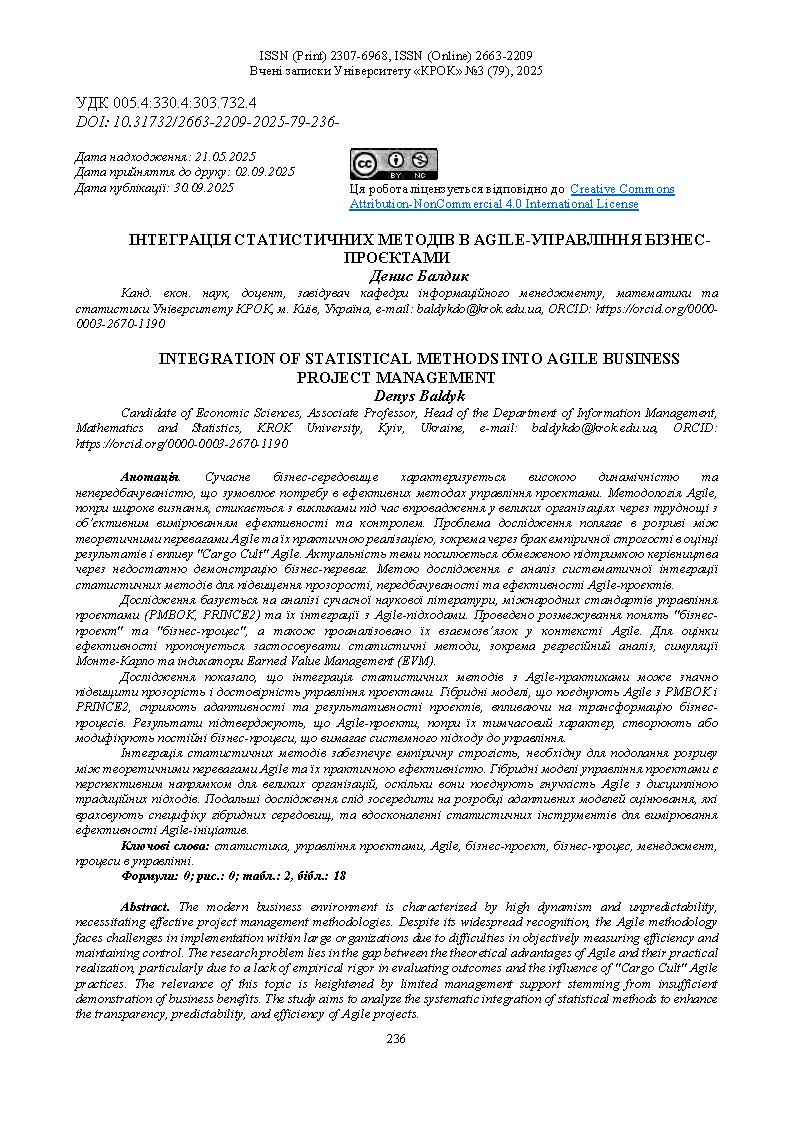INTEGRATION OF STATISTICAL METHODS INTO AGILE BUSINESS PROJECT MANAGEMENT
DOI:
https://doi.org/10.31732/2663-2209-2025-79-236-247Keywords:
statistics, project management, Agile, business project, business process, management, management processesAbstract
The modern business environment is characterized by high dynamism and unpredictability, necessitating effective project management methodologies. Despite its widespread recognition, the Agile methodology faces challenges in implementation within large organizations due to difficulties in objectively measuring efficiency and maintaining control. The research problem lies in the gap between the theoretical advantages of Agile and their practical realization, particularly due to a lack of empirical rigor in evaluating outcomes and the influence of "Cargo Cult" Agile practices. The relevance of this topic is heightened by limited management support stemming from insufficient demonstration of business benefits. The study aims to analyze the systematic integration of statistical methods to enhance the transparency, predictability, and efficiency of Agile projects.
The research is grounded in an analysis of contemporary scientific literature, international project management standards (PMBOK, PRINCE2), and their integration with Agile approaches. A distinction is made between the concepts of "business project" and "business process," with their interrelationship examined in the context of Agile. To assess efficiency, the application of statistical methods is proposed, including regression analysis, Monte Carlo simulations, and Earned Value Management (EVM) indicators.
The findings demonstrate that integrating statistical methods with Agile practices can significantly enhance project management transparency and reliability. Hybrid models combining Agile with PMBOK and PRINCE2 foster project adaptability and effectiveness, influencing the transformation of business processes. The results confirm that, despite their temporary nature, Agile projects create or modify enduring business processes, necessitating a systematic management approach.
The integration of statistical methods provides the empirical rigor needed to bridge the gap between Agile’s theoretical benefits and practical effectiveness. Hybrid project management models represent a promising direction for large organizations, as they combine Agile’s flexibility with the discipline of traditional approaches. Future research should focus on developing adaptive evaluation models tailored to hybrid environments and refining statistical tools to measure the effectiveness of Agile initiatives.
Downloads

Downloads
Published
How to Cite
Issue
Section
License

This work is licensed under a Creative Commons Attribution-NonCommercial 4.0 International License.

